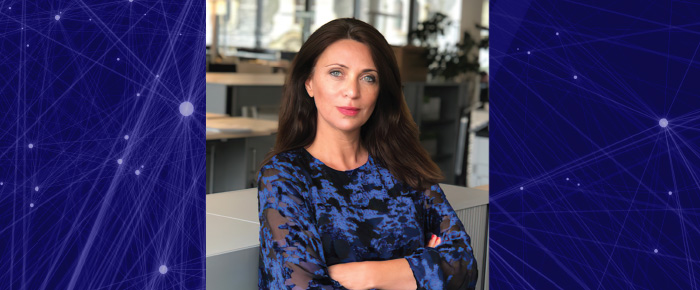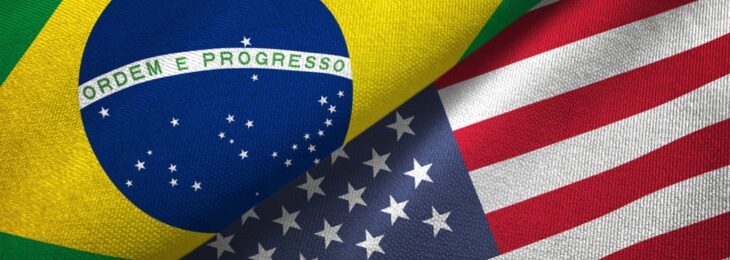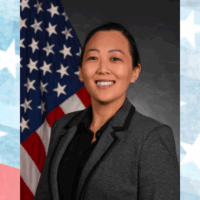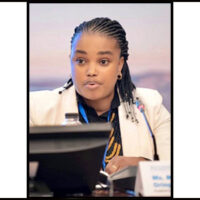
ACAMS Today Europe spoke with Lora von Ploetz, head of a Global Financial Crime Unit focusing on mitigating significant financial crime risks, proactive investigations, analytics and technology. She discusses the impact of Russian sanctions, challenges faced by European anti-financial crime (AFC) professionals and how she has been a mentor for women in AFC.
Before working at her current position, von Ploetz was a senior sanctions officer overseeing sanctions operations for New York, London and Dubai. She held various compliance and legal regulatory management roles at Western Union, UniCredit and other companies. She holds a Master of Law degree in public law from Kliment Ohridsky and a Master of Finance degree from Goethe University Frankfurt am Main.
In addition, she is a founding member of the German Anti-Financial Crime Alliance and a member of the Steering Committee of the Europol Financial Intelligence Public Private Partnership. She has more than 15 years of AFC experience.
ACAMS Today Europe (AT Europe): What was the largest contributor to your success in the AFC industry?
Lora von Ploetz (LVP): It is difficult to give a conventional answer to this question. Indeed, turning your passion into your profession plays a significant role. Nevertheless, I believe the ability to understand and address financial crime risks holistically—to interact with public authorities on a global scale and substantially contribute to building AFC public-private communities—is something that was and remains as the largest contributor to my success.
AT Europe: Sanctions are on top of the agenda for financial institutions (FIs) around the world. What will the global economic impact be of sanctions against Russia?
LVP: The new sanctions are complex, multilateral, dynamic and change almost in real-time with a severe effect on economies far beyond the immediate geographical area of conflict. Economic reports describe the effects of the conflict as “the greatest supply shock since at least the early 1970s.”1 The European Bank for Reconstruction and Development predicts that Ukraine’s gross domestic product will fall by 20% this year and Russia’s by 10%.
We can expect an increased cost for commodities such as food, oil, gas and metals, which will profoundly impact many economies, particularly those in lower-income countries. Central Asia will be impacted by the fall of the Russian rouble. North African economies will be affected by the effects of the supply of wheat. Central European countries such as Armenia, Georgia and Montenegro will also be impacted due to the supply chain disruption risk. The reason is that Russia and Ukraine supply a disproportionately high share of commodities, including wheat, corn, fertiliser, titanium and nickel.
The new sanctions are complex, multilateral, dynamic and change almost in real-time with a severe effect on economies far beyond the immediate geographical area of conflict
AT Europe: The North Atlantic Treaty Organization (NATO) alliance has pushed the limits of economic sanctions imposed by European countries. How does this affect Europe’s dependence on Russian oil?
LVP: During the first weeks of the conflict, the EU did not show strong political determination to ban Russian oil imports. Coal, indeed, is only a small fraction, whereas oil and gas revenues are the main revenue stream. Historically, the oil infrastructure—the Druzhba oil pipeline—was built to serve eastern European markets. However, Russia has developed different exporting routes to China and Asia in the last years. Russia is the largest oil exporter, with about 8% of the world’s supply and the EU is the second-largest importer and end-user of Russian oil. It is difficult to expect that sanctions will change the status quo overnight. Nevertheless, on 5 April 2022, the European Commission proposed a new sanctions package and stated that it is already working to further smart sanctions, including oil imports.
The UK government announced that “the UK will phase out imports of Russian oil by the end of the year.”2 On the other hand, at the beginning of March 2022, President Biden signed: Executive Order on Prohibiting Certain Imports and New Investments With Respect to Continued Russian Federation Efforts to Undermine the Sovereignty and Territorial Integrity of Ukraine,3 which prohibits direct or indirect imports of oil and related energy products from Russian Federation origin into the US. In addition, US persons are prohibited from engaging in financing or facilitating new investments in Russia’s energy sector. Imports of crude oil, petroleum, petroleum fuels, oils and products of their distillation, liquified natural gas, coal and coal products originating from the Russian Federation into the US are also subject to this executive order.
AT Europe: Which financial crimes related to the sanctions imposed on Russia will be the most challenging for AFC professionals?
LVP: FIs shall proactively, almost in real-time, identify potential sanctions evasion activities and sanctions circumvention practices and new jurisdictions of concern that attract Russian money. There are many challenges related to how to apply enhanced due diligence and identify ownership and control under different regulatory regimes or detect end users that may be implicated by global sanctions programs, export controls and security threats. The Financial Crimes Enforcement Network advises that sanctioned actors from Russia and Belarus may attempt to evade sanctions through a variety of means, including through non-sanctioned FIs in Russia and Belarus, as well as FIs in developing countries. Sanctions evasion activities could be conducted by various actors, including import and export companies operating behind complex corporate vails and shell entities, as well as capital exchangers and administrators, which can retain some access to the international financial system within or outside of Russia. Banks are encouraged to use Section 314(b) to share information with other FIs for timely reporting to identify and contain suspected unlawful activities that violate the economic sanctions imposed against Russia.
Other challenges are related to discontinuing deposits by Russian customers, secondary trades in shares, or unwinding certain operations with the Central Bank of the Russian Federation, for example. Increased traceability of transactions on the blockchain will allow further investigation of Russia’s possible sanction evasion tactics using cryptocurrencies.
Banks heavily rely on third-party external data sources providers, tactical and strategic intelligence or open-source intelligence in these efforts. The use of advanced technologies, graphs and network analytics tools to visualise connections and shared addresses or managers, advanced tools for the allocation of IP addresses and devices, as well as sophisticated enablers, which are of critical importance.
AT Europe: As a female in the financial sector, how do you mentor other women to succeed in AFC leadership roles?
LVP: There are many talented young female professionals in compliance. I share my experiences and wisdom, encourage new ways of thinking, challenge their wrong assumptions and help them to learn new skills and grow confidence.
But the most important and competitive quality is indeed a deep AFC knowledge. I have devoted a large amount of time to teaching them to enhance and understand AFC compliance.
AT Europe: In your opinion, what needs to improve within the AFC industry in Europe?
LVP: There are a few fields for improvement that deserve to be mentioned: financial inclusion versus exclusion; good compliance practices which can manage and ring-fence risks; transparency and disclosures, beneficial ownership disclosure (including reporting requirements); streamlining and standardisation of data; holistic assessment of different financial crime risks across the group-wide organisation; and wider risk management of nonfinancial risks; further development of public-private partnerships and information sharing.
AT Europe: What do you enjoy doing when you are off the clock?
LVP: As a working mom of two teens, I like to spend quality time with them and their friends. We like to travel together and explore different cultures. We just came back from the Land of the Pharaohs. We all enjoy Asian food and regularly do culinary tours and experience all the tantalising flavours. I like to read French novels and spend time in my garden with my charming dog Roy as well.
Interviewed by: ACAMS Today Europe editorial, editor@acams.org
The views and opinion in this interview do not represent the official position of any organisation associated with the interviewee.
- Richard Porter, “EBRD sees war on Ukraine causing major growth slowdown,” European Bank for Reconstruction and Development, 31 March 2022, https://www.ebrd.com/news/2022/ebrd-sees-war-on-ukraine-causing-major-growth-slowdown.html
- “Question for Department for Business, Energy and Industrial Strategy,” UK Parliament, https://questions-statements.parliament.uk/written-questions/detail/2022-03-08/HL6771
- “Executive Order on Prohibiting Certain Imports and New Investments With Respect to Continued Russian Federation Efforts to Undermine the Sovereignty and Territorial Integrity of Ukraine,” The White House, 8 March 2022, https://www.whitehouse.gov/briefing-room/presidential-actions/2022/03/08/executive-order-on-prohibiting-certain-imports-and-new-investments-with-respect-to-continued-russian-federation-efforts-to-undermine-the-sovereignty-and-territorial-integrity-of-ukraine/










